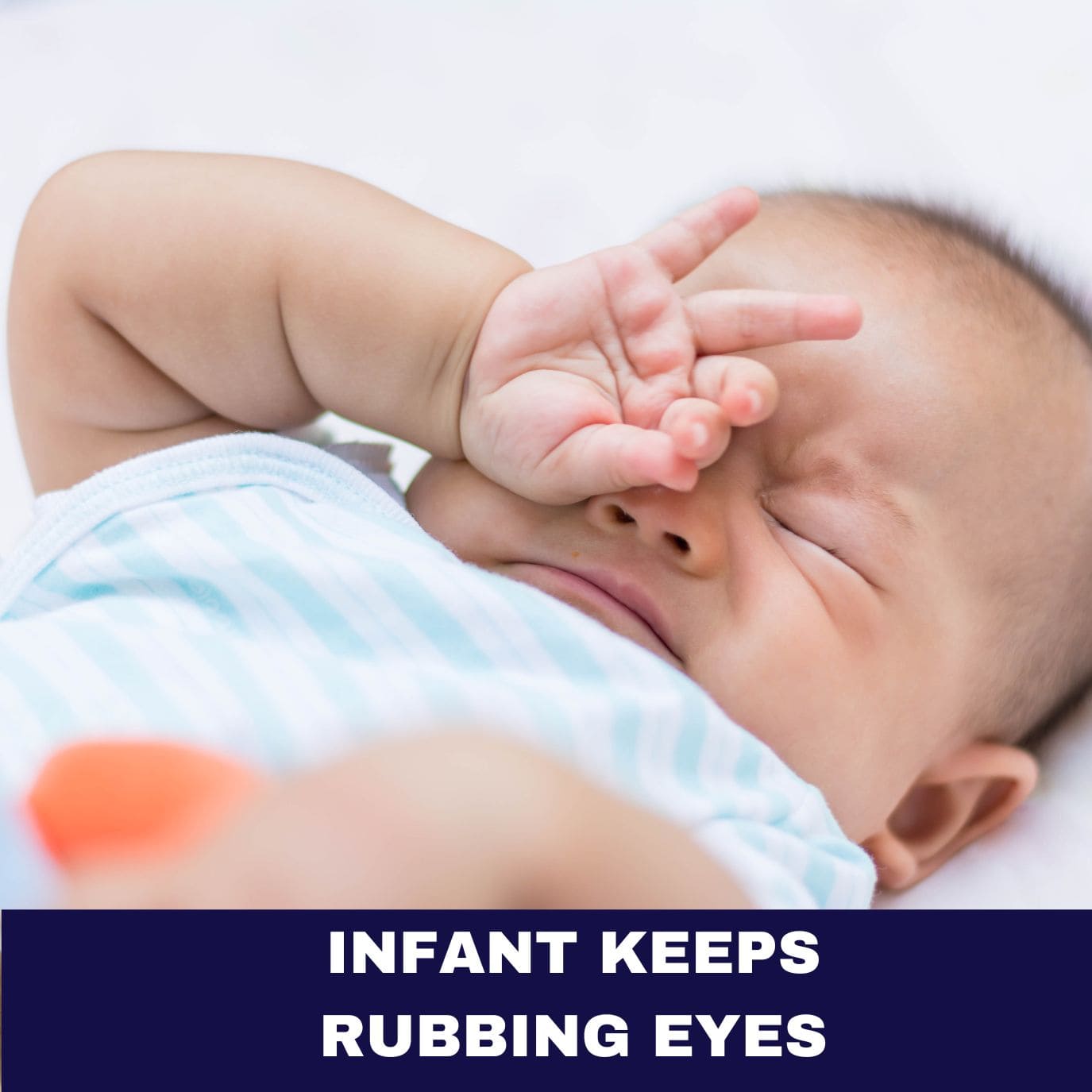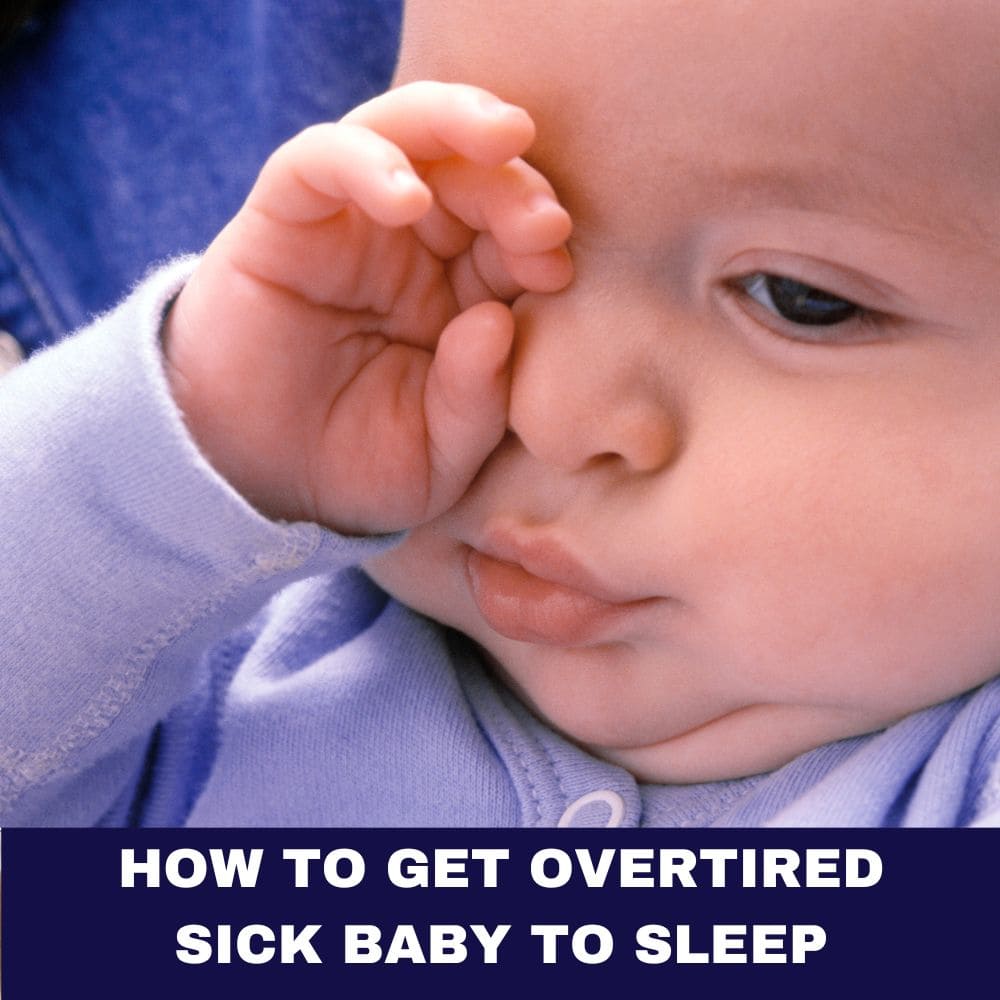Imagine this: you’re gazing lovingly at your precious newborn, their tiny chest rising and falling with each peaceful breath. Suddenly, you notice their little mouth is slightly agape, and you can’t help but wonder, “Is it normal for a newborn to sleep with their mouth open?”
Fear not, dear parent! This seemingly peculiar sleeping habit is not only common but also holds a treasure trove of fascinating insights. Join me as we embark on an enlightening journey to unravel the remarkable reasons behind this endearing quirk.

Is It Normal for a Newborn to Sleep With Their Mouth Open?
The short answer is yes, it’s perfectly normal for newborns to slumber with their mouths open. In fact, it’s a widespread phenomenon that many parents observe during those early days and weeks of their baby’s life. While it might seem unusual at first, rest assured that this adorable sleeping position is generally harmless and often a temporary phase.
As you navigate the exciting yet sometimes bewildering world of parenthood, it’s essential to understand that newborns are still adjusting to life outside the womb. Their little bodies and habits are constantly evolving, and open-mouth sleeping is just one of the many quirks you’ll encounter along the way.
The Fascinating Science Behind Newborn’s Open-Mouth Slumber
Delving deeper into the fascinating world of newborn physiology, we uncover several intriguing reasons behind this sleep position. Buckle up, and let’s explore the captivating science behind this phenomenon.
- Nasal Congestion: Newborns often experience stuffy noses due to their tiny nasal passages and underdeveloped immune systems. When congested, breathing through the mouth becomes a natural reflex, allowing them to take in the oxygen they need during sleep.
- Immature Respiratory System: A newborn’s respiratory system is still developing, and their breathing patterns can be irregular. Open-mouth sleeping may be a temporary adaptation to accommodate their immature respiratory mechanics.
- Muscle Tone Development: Infants are born with relatively low muscle tone, including the muscles responsible for keeping their mouths closed during sleep. As they grow and develop, their muscle control will improve, leading to a transition to closed-mouth sleeping.
While these physiological factors play a significant role, there are other intriguing reasons why your little one might snooze with an open mouth.
Reasons a Newborn Might Sleep with Their Mouth Open
Let’s dive into the various potential causes that contribute to this adorable sleeping habit:
- They Might Have A Cold or Allergies: Just like adults, newborns can experience nasal congestion due to colds or allergies, leading them to breathe through their mouths during sleep.
- Sleep Apnea: In some cases, open-mouth sleeping may be a sign of sleep apnea, a condition where breathing is briefly interrupted during sleep. If you notice loud snoring, gasping, or pauses in breathing, it’s best to consult your pediatrician.
- Deviated Septum: A deviated septum, or a misaligned nasal septum, can obstruct airflow and cause breathing difficulties, prompting your baby to sleep with their mouth open.
- Tongue-tied: If your newborn is tongue-tied, meaning their tongue’s frenulum (the small strip of tissue connecting the tongue to the floor of the mouth) is too short or tight, it can lead to open-mouth sleeping and potential feeding difficulties.
- Forming a Habit: Sometimes, newborns simply develop a habit of sleeping with their mouths open, and it becomes their preferred position, even after the initial reasons have resolved.
While these reasons might seem concerning, rest assured that in most cases, open-mouth sleeping is a temporary and harmless phase that your baby will outgrow.
The Significance of Tongue-Tie and Open-Mouth Sleeping
Tongue-tie, a condition where the frenulum (the band of tissue connecting the tongue to the floor of the mouth) is abnormally short or tight, can significantly impact a newborn’s ability to breathe and feed properly. In some cases, tongue-tie may contribute to open-mouth sleeping, as restricted tongue movement can hinder proper nasal breathing.
If you suspect your baby may have a tongue-tie, it’s essential to consult with a lactation consultant or healthcare professional. A simple and relatively painless procedure called a frenectomy can release the restricted frenulum, allowing for improved tongue mobility and, consequently, better breathing and feeding.
Addressing tongue-tie early on can not only alleviate open-mouth sleeping but also prevent potential long-term issues such as speech difficulties, dental problems, or feeding challenges.

The Connection Between Open-Mouth Sleeping and Reflux
For some babies, open-mouth sleeping may be associated with gastroesophageal reflux disease (GERD), a condition where stomach contents (including acid) can back up into the esophagus, causing discomfort and respiratory issues.
When a baby experiences reflux, the regurgitated stomach contents can irritate the nasal passages and throat, leading to congestion and difficulty breathing through the nose. As a result, the baby may unconsciously resort to open-mouth breathing during sleep to alleviate the discomfort and ensure adequate airflow.
If you notice your baby frequently sleeping with an open mouth, accompanied by other signs of reflux such as frequent spitting up, coughing, or fussiness, it’s advisable to consult your pediatrician. They may recommend lifestyle changes, medication, or other appropriate treatments to manage the reflux and potentially alleviate the associated open-mouth sleeping.
Cultural Perspectives on Open-Mouth Sleeping
While open-mouth sleeping in newborns is a universal phenomenon, different cultures and traditions have varying perspectives on this quirky habit. In some societies, it’s believed that a baby sleeping with their mouth open signifies contentment and a deep sense of security, as it’s a sign of complete relaxation.
In contrast, other cultures may view open-mouth sleeping as an indication of poor sleep quality or a potential health concern. For instance, in certain Asian traditions, it’s believed that sleeping with an open mouth can lead to excessive drooling or even allow negative energies to enter the body.
These cultural beliefs, while often rooted in folklore or superstition, highlight the diverse interpretations and attitudes surrounding this common newborn behavior. As parents, it’s essential to separate fact from fiction and rely on scientific evidence and professional guidance when addressing concerns about your baby’s sleep habits.
Potential Complications from Mouth Breathing
Although generally harmless, prolonged mouth breathing during sleep can potentially lead to some complications if left unaddressed. It’s essential to be aware of these potential issues and take proactive steps to minimize any discomfort or long-term effects.
- Dry Mouth and Cracked Lips: When breathing through the mouth, the air can dry out the oral cavity, leading to a parched mouth and potentially cracked or chapped lips.
- Skin Irritation: Drool or saliva can accumulate around the mouth area, causing skin irritation or even rashes if left unattended.
- Dental Issues: In some cases, long-term mouth breathing during sleep may contribute to dental problems, such as misaligned teeth or jaw development issues.
- Sleep Disruptions: While occasional mouth breathing is normal, excessive or loud mouth breathing can potentially disrupt your baby’s sleep quality and lead to restlessness or frequent wake-ups.
By being mindful of these potential complications, you can take proactive steps to alleviate any discomfort and ensure your little one sleeps soundly and comfortably.
Remedies for Mouth Breathing
Fear not, dear parent! There are several simple and effective remedies you can try to alleviate mouth breathing and keep your baby comfortable during their slumber:
- Use of a Humidifier: Running a cool-mist humidifier in your baby’s room can help moisten the air, reducing nasal congestion and promoting easier breathing through the nose.
- Nasal Suction or Saline Drops: Gently using a bulb syringe or saline nasal drops can help clear any mucus buildup, allowing for easier nasal breathing.
- Install an Air Filter: Investing in a high-quality air filter can remove airborne allergens and pollutants, reducing the risk of congestion and promoting clearer airways.
- Regular Vacuuming: Keeping your baby’s environment clean and free of dust can minimize allergens and irritants that may contribute to congestion.
- Ensure Proper Hydration: Providing adequate fluids, whether through breastfeeding or formula, can help thin out mucus and alleviate congestion.
- Give a Warm Bath: A warm (not hot) bath can provide temporary relief from congestion by loosening mucus and allowing for easier breathing.
Next Step Advice: If you’ve tried these remedies and your baby’s mouth breathing persists or worsens, it’s always best to consult your pediatrician for further evaluation and guidance.
The Impact of Room Temperature and Humidity on Open-Mouth Sleeping
The ambient temperature and humidity levels in your baby’s sleeping environment can significantly influence their tendency to sleep with an open mouth. Excessively dry or warm conditions can contribute to nasal congestion and discomfort, prompting your little one to resort to mouth breathing during sleep.
Maintaining a comfortable room temperature between 68°F and 72°F (20°C to 22°C) and keeping the humidity levels between 30% and 50% can help alleviate congestion and promote easier nasal breathing. Consider using a humidifier or dehumidifier, depending on your local climate, to achieve the ideal humidity levels.
Additionally, monitoring your baby’s sleep environment for potential allergens or irritants, such as dust mites or pet dander, can help reduce respiratory issues that may lead to open-mouth sleeping.
| Age | Room Temperature | Humidity Level |
|---|---|---|
| Newborn to 3 months | 68°F – 72°F (20°C – 22°C) | 30% – 50% |
| 3 – 6 months | 68°F – 72°F (20°C – 22°C) | 30% – 50% |
| 6 – 9 months | 68°F – 72°F (20°C – 22°C) | 30% – 50% |
| 9 – 12 months | 68°F – 72°F (20°C – 22°C) | 30% – 50% |
The Role of Swaddling in Preventing Open-Mouth Sleeping
Swaddling, the age-old practice of wrapping a baby snugly in a blanket, can be an effective remedy for reducing open-mouth sleeping in newborns. When swaddled correctly, a baby’s arms and legs are gently secured, promoting a cozy, womb-like environment that can help regulate their breathing patterns.
The gentle pressure applied by the swaddle can stimulate the baby’s natural reflexes, encouraging them to breathe through their nose rather than their mouth. Additionally, swaddling can provide a sense of comfort and security, potentially reducing the likelihood of mouth breathing due to stress or discomfort.
However, it’s crucial to follow proper swaddling techniques and safety guidelines to ensure your baby’s well-being. Always leave room for hip and leg movement, and discontinue swaddling once your baby shows signs of attempting to roll over, typically around 2-3 months of age.
| Benefit | Description |
|---|---|
| Improved Sleep | Swaddling can help newborns sleep longer and more soundly. |
| Reduced Crying | The cozy, womb-like environment can soothe and calm fussy babies. |
| Regulation of Startle Reflex | Swaddling can prevent the startle reflex from disrupting sleep. |
| Easier Breastfeeding | Swaddled babies may latch on more efficiently during feedings. |
| Promoting Nasal Breathing | Gentle pressure from swaddling can encourage nasal breathing. |
The Connection Between Open-Mouth Sleeping and Breastfeeding
For breastfeeding mothers, you might have noticed that your little one tends to sleep with their mouth open more often after nursing sessions. This phenomenon is not a coincidence – there’s a fascinating connection between open-mouth sleeping and breastfeeding.
During breastfeeding, babies often adopt a slightly open-mouth position to facilitate easier breathing through the nose while nursing. This habit can sometimes carry over into their sleep, leading them to snooze with their mouths agape.
Furthermore, the act of breastfeeding itself can contribute to nasal congestion due to the physical positioning and the flow of milk. As a result, your baby may unconsciously resort to mouth breathing during sleep to compensate for any nasal obstruction.

Newborn Open-Mouth Sleeping: A Sign of Deep Slumber
Here’s an intriguing insight: newborns who sleep with their mouths open may actually be experiencing deeper, more restorative sleep. This sleep position can be an indication that your little one is fully relaxed and comfortable, allowing their muscles to go completely limp, including those responsible for keeping their mouths closed.
Deep, uninterrupted sleep is crucial for your baby’s overall growth and development, as it’s during this time that their bodies and minds rejuvenate and process the day’s experiences. So, while it might seem unusual at first, embrace the open-mouth slumber as a sign that your newborn is getting the restful sleep they need.
When to Seek Medical Advice
While open-mouth sleeping is generally harmless, there are certain situations where it’s advisable to consult your pediatrician:
- If your baby’s mouth breathing is accompanied by loud snoring, gasping, or pauses in breathing, it could be a sign of sleep apnea or other respiratory issues.
- If the mouth breathing persists beyond the newborn stage and becomes a chronic habit, it’s worth getting it evaluated to rule out any underlying conditions.
- If your baby seems to be having difficulty feeding or gaining weight due to mouth breathing, it’s important to seek medical advice.
Remember, while occasional mouth breathing is normal, persistent or severe cases should be addressed to ensure your baby’s overall health and well-being.
| Sign | Description |
|---|---|
| Rapid Breathing | Breathing rate exceeding 60 breaths per minute while resting |
| Nasal Flaring | Nostrils widening with each breath, indicating difficulty breathing |
| Retractions | Visible inward movement of the chest or abdomen with each breath |
| Grunting | Making a grunting sound with each exhale |
| Cyanosis | Bluish discoloration of the skin, lips, or nailbeds |
Capturing Precious Moments: Newborn Open-Mouth Sleeping Photos
Let’s be honest – there’s something utterly adorable about a newborn sleeping peacefully with their tiny mouth agape. These precious moments are fleeting, and before you know it, your little one will have outgrown this endearing quirk. That’s why it’s crucial to capture these moments through the lens of your camera or smartphone.
Newborn open-mouth sleeping photos not only make for heartwarming memories but can also serve as a visual record of your baby’s growth and development. As you look back on these cherished images in the years to come, you’ll be reminded of the heartwarming journey you embarked on as a parent, filled with both challenges and delightful moments like these.
Don’t be shy – snap away! These candid shots will become treasured keepsakes that you and your little one can cherish for years to come. Who knows? You might even end up with an adorable photo series capturing the evolution of your newborn’s sleeping habits, from open-mouthed bliss to peaceful closed-lip slumber.
Transitioning to Closed-Mouth Sleeping: What to Expect
While open-mouth sleeping is perfectly normal and expected in newborns, you’ll eventually notice your little one transitioning to a closed-mouth sleeping position. This transition typically occurs between 3 to 6 months of age, as your baby’s muscle control and respiratory system continue to develop and mature.
As your newborn grows, you may observe the following signs that indicate they’re ready to transition to closed-mouth sleeping:
- Improved muscle tone, allowing them to better control their jaw and lip movements during sleep.
- Decreased nasal congestion or respiratory issues that initially prompted mouth breathing.
- A shift in sleeping positions, as they become more comfortable and adept at self-soothing.
However, it’s important to note that every baby is unique, and the timeline for this transition can vary. Some babies may transition earlier or later than others, and that’s perfectly normal. As long as your little one is sleeping comfortably and showing no signs of distress, there’s no need to worry.
Conclusion
Congratulations, fellow parent! You’ve now unlocked a treasure trove of knowledge surrounding the remarkable phenomenon of newborn open-mouth sleeping. From understanding the fascinating science behind it to implementing practical remedies and embracing its endearing charm, you’re equipped to navigate this quirky phase with confidence.
Remember, open-mouth sleeping is a natural and temporary part of your newborn’s journey, and it’s a reminder to cherish every fleeting moment of their early days. Embrace the adorable quirks, capture the precious memories, and take solace in the knowledge that your little one’s sleep habits will continue to evolve as they grow and thrive.
So, the next time you catch your newborn slumbering with their tiny mouth agape, let a smile spread across your face. It’s a testament to their ability to find comfort and serenity in the world around them, and a reminder of the wonders that come with welcoming a new life into your family.
FAQ – Newborn Sleeps With Mouth Open
Is it harmful if my newborn sleeps with their mouth open?
In most cases, no, it is not harmful for a newborn to sleep with their mouth open. Open-mouth sleeping is a common and generally harmless phenomenon in newborns. It is often a temporary phase as they adjust to life outside the womb and their respiratory systems and muscle control develop.
However, it’s important to monitor for any signs of respiratory distress, such as rapid breathing, nasal flaring, retractions, grunting, or cyanosis. If you notice these signs, especially in combination with persistent open-mouth sleeping, it’s crucial to seek medical attention as it could indicate an underlying issue like sleep apnea or a respiratory condition.
Additionally, prolonged mouth breathing can potentially lead to dry mouth, skin irritation, or dental problems if left unaddressed. Implementing remedies like using a humidifier, nasal saline drops, or ensuring proper hydration can help alleviate any discomfort or complications.
When should I be concerned about my baby’s open-mouth sleeping?
While occasional open-mouth sleeping is normal and expected in newborns, there are certain situations when you should consider seeking medical advice:
- If the mouth breathing persists beyond the newborn stage and becomes a chronic habit lasting several months.
- If your baby seems to be having difficulty feeding or gaining weight due to persistent mouth breathing.
- If the open-mouth sleeping is accompanied by loud snoring, gasping, or pauses in breathing, which could indicate sleep apnea or other respiratory issues.
- If your baby appears to be in distress or discomfort while sleeping with an open mouth.
It’s always better to err on the side of caution and consult your pediatrician if you have any concerns about your baby’s open-mouth sleeping habits or overall well-being.
Can swaddling help prevent open-mouth sleeping in newborns?
Yes, swaddling can be an effective remedy for reducing open-mouth sleeping in newborns. When swaddled correctly, a baby’s arms and legs are gently secured, promoting a cozy, womb-like environment that can help regulate their breathing patterns.
The gentle pressure applied by the swaddle can stimulate the baby’s natural reflexes, encouraging them to breathe through their nose rather than their mouth. Additionally, swaddling can provide a sense of comfort and security, potentially reducing the likelihood of mouth breathing due to stress or discomfort.
However, it’s crucial to follow proper swaddling techniques and safety guidelines, leaving room for hip and leg movement, and discontinuing swaddling once your baby
Can tongue-tie contribute to open-mouth sleeping in newborns?
Yes, tongue-tie can be a potential contributing factor to open-mouth sleeping in newborns. Tongue-tie is a condition where the frenulum (the band of tissue connecting the tongue to the floor of the mouth) is abnormally short or tight, restricting tongue movement.
When a baby has tongue-tie, their ability to breathe and feed properly can be hindered, as the restricted tongue movement can obstruct proper nasal breathing. As a result, the baby may unconsciously resort to open-mouth breathing during sleep to ensure adequate airflow.
If you suspect your baby may have tongue-tie, it’s essential to consult with a lactation consultant or healthcare professional. A simple and relatively painless procedure called a frenectomy can release the restricted frenulum, allowing for improved tongue mobility and, consequently, better breathing and feeding.
Can reflux cause open-mouth sleeping in babies?
Yes, there is a potential connection between open-mouth sleeping and gastroesophageal reflux disease (GERD) in babies. GERD is a condition where stomach contents (including acid) can back up into the esophagus, causing discomfort and respiratory issues.
When a baby experiences reflux, the regurgitated stomach contents can irritate the nasal passages and throat, leading to congestion and difficulty breathing through the nose. As a result, the baby may unconsciously resort to open-mouth breathing during sleep to alleviate the discomfort and ensure adequate airflow.
If you notice your baby frequently sleeping with an open mouth, accompanied by other signs of reflux such as frequent spitting up, coughing, or fussiness, it’s advisable to consult your pediatrician. They may recommend lifestyle changes, medication, or other appropriate treatments to manage the reflux and potentially alleviate the associated open-mouth sleeping.












